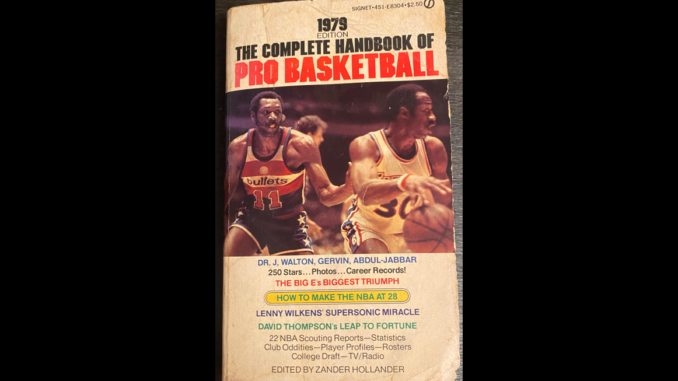
Back in the days before the internet, as an NBA fan I cannot tell you how thrilling it was to approach October, the start of the new season, when the new Zander Hollander Complete Handbook of Pro Basketball would come out.
You’d keep checking in the Sports section of the bookstore — which for me was a Barnes and Nobles in Manhattan on 8th Street and Broadway — to see if it had arrived.
And then there it would be — a quick purchase and could not wait to start reading it on the subway back home to Brooklyn.
It was more than a treat — the unique feature was the funny and accurate bios of each player that Hollander provided, which were part scouting report, part standup comedy, but always razor sharp and on the money. Zander pushed the envelope. This type of writing, on sports players, was not available anywhere.
He also provided statistics for each player, a scouting report on players just drafted, and predictions — a complete handbook.
Analysis of Zander’s Analysis
I’m providing here a sampling of the 1979 Handbook — the pages for the Knicks team — under Fair Use doctrine of Copyright law, and with perfect hindsight, will analyze Zander’s analysis. The book details the 1977-78 season, with the 1978-79 season about to begin. The Knicks had just finished 43-39, and won the first round series over Cleveland, but got swept by Philadelphia in round 2, as they double teamed Bob McAdoo.
The 1978-79 Knicks
The Knicks were a great team on paper — and there was expectation they would do well in 1978-79 — especially after signing Marvin Webster just before the season as a big-time free agent, bolstering their defense and front line — which also had Bob McAdoo and Spencer Haywood.
But the team fell apart, going 31-51. Spencer Haywood would be unloaded in January for Joe Meriweather. McAdoo was traded to Boston in February for 3 1st-round draft picks — the first of which would become the #3 pick in the 1979 draft and result in NY picking Bill Cartwright (the other picks eventually resulted in Larry Demic and Sly Williams). NY didn’t know it but it was a team in transition. The new guard was already on the team — Ray Williams and Micheal Ray Richardson. The old guard looked good on paper but the team didn’t play any defense on the court.
Time Machine
Below we present this time machine — again under Fair Use doctrine of Copyright law — we provide a screen shot and provide our analysis of Zander’s analysis:
Hollander hit it on the head in calling out the Knicks lack of defense, rebounding, and passing. He predicts a playoff team — so he got that wrong; he got fooled by the prior season and didn’t add up all of his spot-on analysis.
Just before this season began, in September 1978, the Knicks would sign high-end free agent Marvin Webster to play center. The Human Eraser made the Knicks look Great on paper — providing the interior defense NY needed. But alas it still didn’t work out. The Knicks started out 6-8, and Willis Reed was fired as coach — replaced with Red Holzman. NY would go 25-43 under Holzman.
On Bob McAdoo: “When asked to score less for the sake of a balanced attack, he does none of that” — Zander Hollander never minced words. McAdoo would be traded in February, 1979 as NY pulled the plug on this team. As mentioned at the top of this article, NY got a #1 pick back from Boston that would end up being the #3 overall pick and Bill Cartwright — the beginning of a new era.
Earl Monroe was indeed not that spectacular at this point in his career — his press clippings at the time belied what you saw on the court — which was a kind of slow unathletic guard who could still score on jumpers after some gyration shake-and-bake moves. But there was no D and no passing. Monroe would average a career low 12.3 ppg in only 64 games in 1978-79, and then 7.4 ppg in only 51 games in 1979-80 before retiring a Knick. He remained a fan favorite as much as ever — as offense off the bench.
Lonnie Shelton was a tough young power forward for those Knicks. But the NBA — at that point seemingly run by Red Auerbach with puppet strings — ripped NY a good one in determining they had to give up Lonnie Shelton as compensation for NY signing Marvin Webster — so Lonnie went to Seattle and didn’t play with NY in 1978-79.
Meanwhile Spencer Haywood averaged 17.8 points and 6.1 rebounds — empty numbers — especially the rebounds — before getting traded in January of 1979 as the Knicks pulled the plug on this team.
As Hollander points out, the Knicks had acquired Jim Clemens a year earlier for Walt Frazier, who had all of a sudden lost a step on defense at age 31. Clemens was younger but not nearly as good. Not even close.
The young Ray Williams on this team — he had not yet made his mark but would start doing so in 1978-79 — averaging 17.3 ppg.
Jim McMillan was one of those players who made the Knicks look great on paper when they acquired him from Buffalo — he was going to be the new Bill Bradley — but it didn’t work out at all.
A lot of talented youth on this team — again making it look like a great team on paper. The young Toby Knight would make his mark in 1978-79, averaging 16.6 ppg, and taking over at the forward scoring slot after McAdoo and Haywood were jettisoned. Glenn Gondrezick — Gondo — was a fiery player as Hollander points out. He’d play 1978-79 with NY, averaging 5.0 ppg before NY waived him. Gondo got picked up by Denver, where he played 4 years, averaging 4.6 to 8.3 ppg, before retiring.
Mike Glenn — good shooter. The poor man’s Dell Curry. And of course last but not least, Micheal Ray Richardson — who would be horrible as a rookie, but come on strong in 1979-80 to become one of the great Knick point guards — for a few years before cocaine derailed his NBA career, and he got traded for Bernard King who led the Knicks to some glory years.
As mentioned above, Willis Reed lasted only 14 games the coming season as coach. Again Zander Hollander was spot on in his analysis.

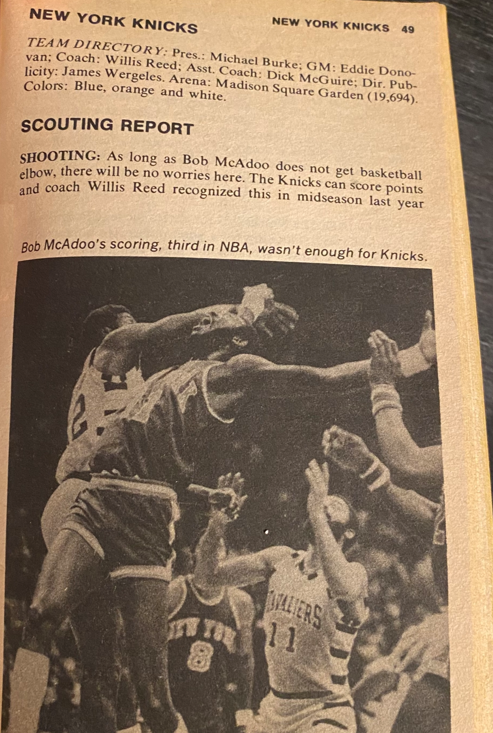
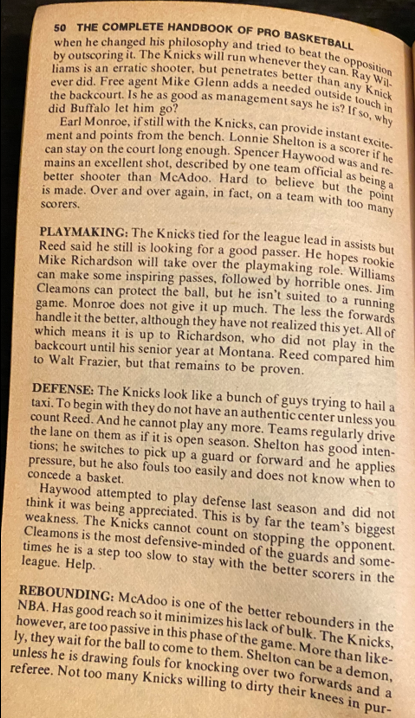
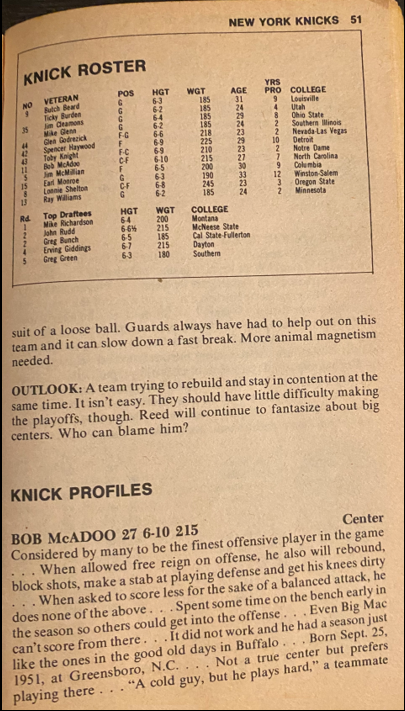
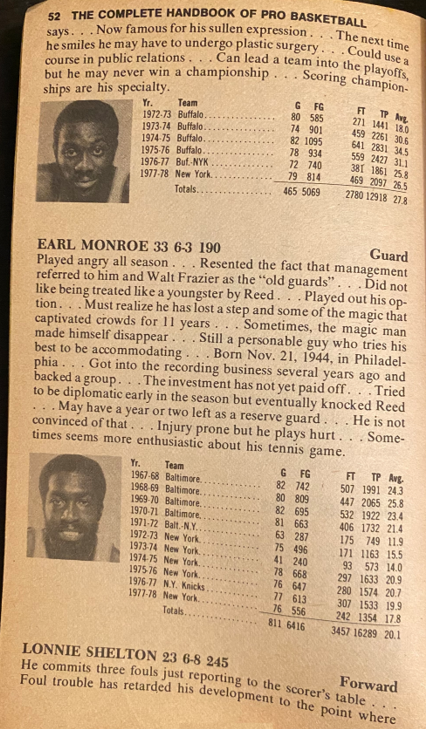
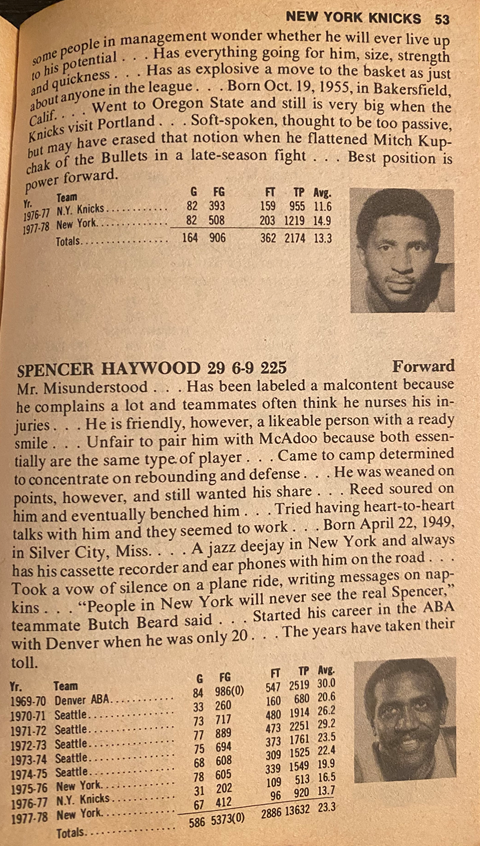
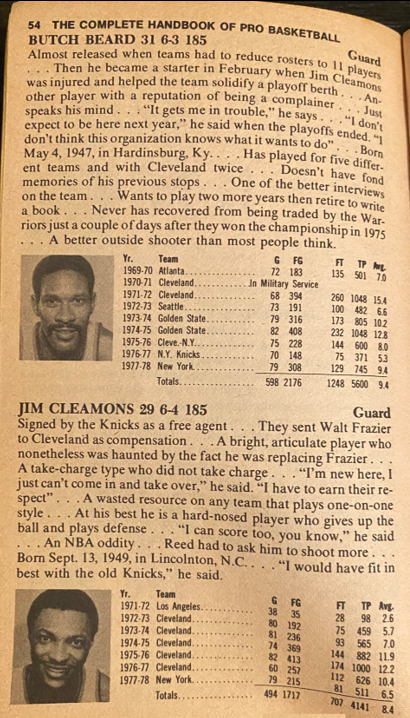
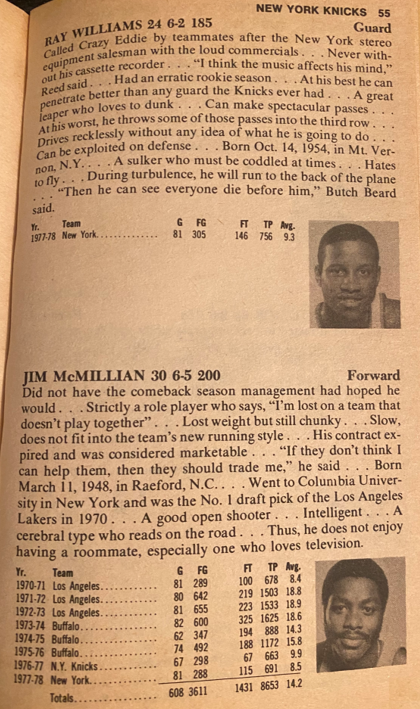
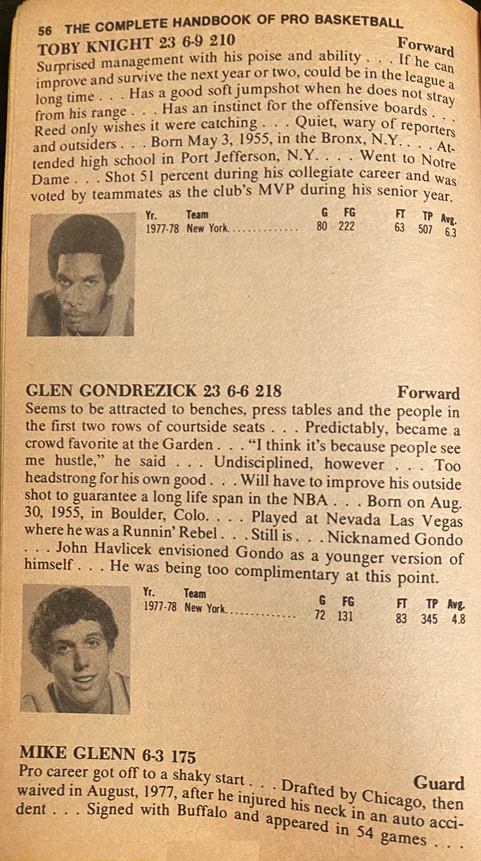
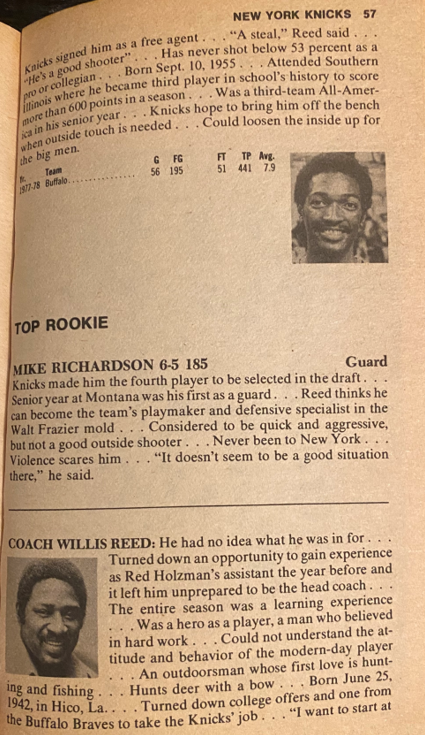
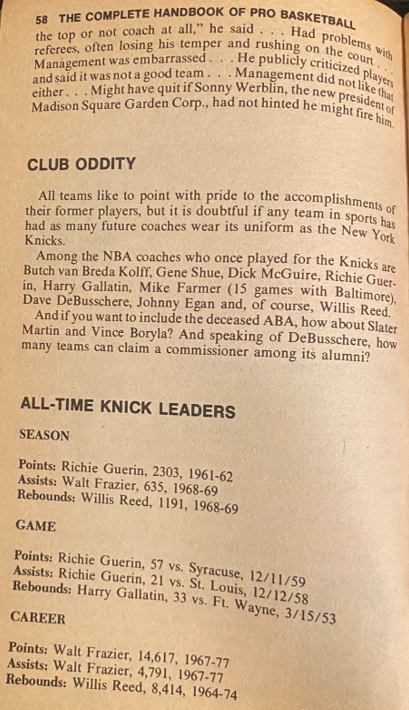
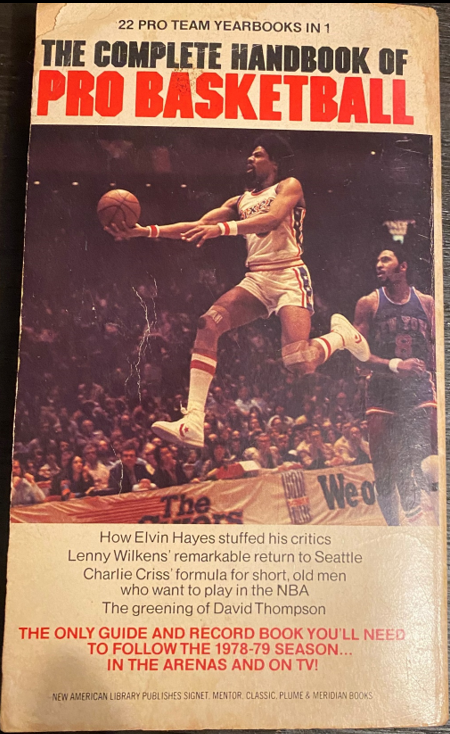
“part scouting report, part standup comedy”
I still remember Hollander on Benoit Benjamin in the 1994 edition: “to say he has stone hands would insult rocks”. (-:
That is Funny. Laughed out loud.